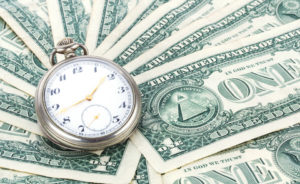 Academics theorise that time is the indefinite continued progress of existence and events that occur in apparently irreversible succession from the past through present to the future. ‘Time’ searches on google reveal clocks and other timepieces making it seem that time is a constant in our lives – moving day after day at the same methodical pace.
Academics theorise that time is the indefinite continued progress of existence and events that occur in apparently irreversible succession from the past through present to the future. ‘Time’ searches on google reveal clocks and other timepieces making it seem that time is a constant in our lives – moving day after day at the same methodical pace.
Albert Einstein begged to differ! He reckoned time was very deceptive. Or more correctly, the dividing line between past, present, and future is an illusion. Einstein showed that time is not a constant. It is flexible and relative. Flexibility seems self-explanatory but relativity is perhaps more difficult to grasp. Einstein posited that depending on our position and speed, time can appear to move faster or slower to us relative to others. A simple example is a traveller on a speeding train and a bystander at the station. Both observe past, present and future slightly differently. The here and now is blurred. Einstein’s theory defines this as time dilation – the difference in the elapsed time measured by two observers. Time moves slower at higher speeds. The theory has been tested by sending an atomic clock into space and returning it to earth some months later. It moved slower than the equivalent clock on earth.
When we use the expression ‘timing is everything’ what precisely do we intend? It normally relates to seizing an opportunity at just the right time – the perfect moment; getting through a junction ahead of a traffic accident; snapping a photo before the pose is lost; investing in the markets just before they rise. But, of course, this is all relative! The ‘timing is everything’ proposition depends on who is doing the observing and from where?
If consumers are brutally honest with themselves the notion of seizing the perfect moment is dependent on a lot of luck and good fortune – not skill and expertise! Recognising this deflates big egos but it does provide a realistic assessment of the situation. It allows consumers to determine that timing isn’t everything – positioning is. Trying to time future events is extremely problematic. But being in the right position makes it easier to grasp the opportunities as they arise.
None of this should be lost on the world of investing where the precepts of time and timing have been adjudged ad nauseam. Value investors commend the length of time as the ideal – whereas, growth investors see timing as vital. In truth, both approaches are flawed. Being in the correct position to make investment decisions is the foremost approach that should be adopted by consumers.
In order to get themselves into the correct position consumers need to assess their own individual circumstances and absolutely refrain from heeding herd instinct. In many cases, such an assessment might conclude that consumers are not in a position to invest. Or the analysis may allow consumers to understand what steps should be taken to get themselves in position. Timing is not everything – positioning is. Time is a chimera!

